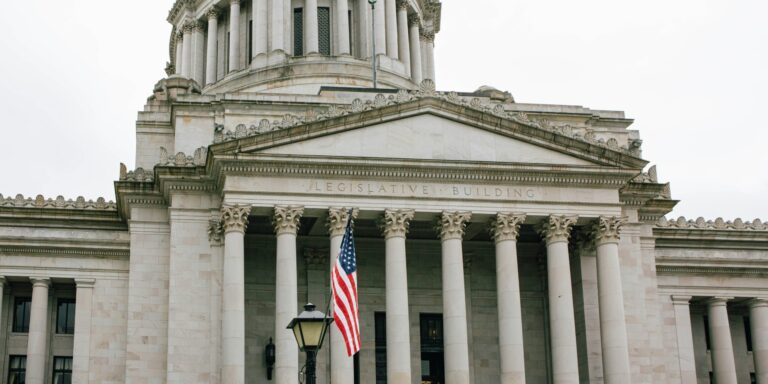On September 18, 2025, a group of influential figures from the Pacific Northwest, including Senator Maria Cantwell and local small business owners, gathered outside the U.S. Supreme Court to voice their opposition to President Donald Trump’s import tariffs. The protesters argued that the tariffs, initially implemented during the Trump administration, have been detrimental to local businesses and the broader U.S. economy. Their demonstration coincided with the Court’s preparations to hear a critical case that challenges the president’s authority to impose such tariffs without Congressional approval.
The issue at hand centers on whether the president has the constitutional power to unilaterally impose tariffs or if such decisions require the explicit approval of Congress. The tariffs, which were initially implemented as part of a broader trade war strategy with China and other nations, have had far-reaching effects on industries across the country. Small business owners in the Pacific Northwest, many of whom rely on imported goods for their products, argue that the tariffs have resulted in higher costs, disrupted supply chains, and hurt their competitiveness in the global market.
Read Also: https://nvtoday.com/u-s-stock-market-reacts-to-new-tariffs-and-corporate-earnings-reports/
Senator Cantwell, a vocal critic of the tariffs, emphasized that the economic strain caused by the import taxes is disproportionately impacting consumers in her state, driving up prices for goods and services while offering little in return for local industries. She expressed concern that these economic challenges could stifle growth in key sectors like manufacturing and agriculture, which are crucial to the Pacific Northwest’s economy.
The protesters are also worried about the long-term implications of the tariffs on American trade relationships, particularly in the context of global supply chains. Many of the industries affected by the tariffs, including technology, retail, and agriculture, rely heavily on imported materials, and the increased costs associated with these tariffs have placed a significant burden on businesses and consumers alike.
The upcoming Supreme Court case could have significant ramifications for U.S. trade policy. If the Court rules against the president’s ability to impose tariffs without Congressional approval, it could alter the way future trade policies are implemented and restore Congressional oversight over trade-related decisions. On the other hand, if the Court upholds the president’s authority, it could further embolden executive power in the realm of international trade and potentially set a precedent for future administrations to take similar unilateral actions.
As the case proceeds, the outcome will likely shape the future of U.S. trade policy, impacting both domestic businesses and international relations. The ongoing debate surrounding these tariffs underscores the tension between executive authority and Congressional oversight in shaping economic policy, and the decision by the Supreme Court will be closely watched by policymakers, business leaders, and trade experts alike.


